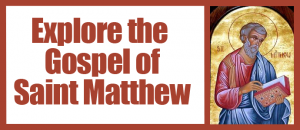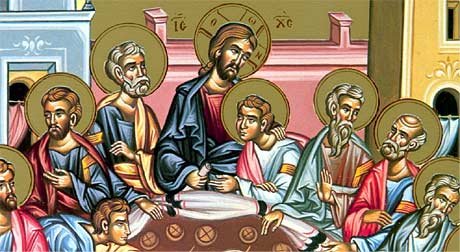One of the differences between our Ukrainian Greek-Catholic faith and Roman Catholicism, is our sacramental theology – our understanding of how the Mysteries are performed. In our Eastern experience of Christianity, there is no thought of trying to pin-down the exact moment when God, in His loving kindness, transforms the bread and wine into the Body and Blood of Jesus. The same is not true about Western Catholicism. It believes that the consecration of the Gifts takes place by the repetition of the Words that Jesus used during the Last Supper and recorded in the New Testament. When the AMEN is said at the end of each proclamation of Jesus words, each gift is transformed. This was defined when a sacramental theologian posed the hypothetical situation where a priest might die while proclaiming the words of Jesus. It was necessary to know if the gifts were consecrated or not.
It is the Eastern Church’s understanding that all the Mysteries transpire only by the action of God as Trinity. So, besides praying to the Father and remembering the words of the Son, we must invoke the Holy Spirit to transform the Gifts. This is in agreement with the Eastern Church’s understanding of the Trinity. While the Son is the Word of the Father, the Word has power to transform because of the Spirit. All Three Persons actively participate in the transformation of the bread and wine into the Body and Blood of Christ.
You will recall that the Scriptures tell us that Jesus sent the Holy Spirit upon His followers in order to make all of His teaching real and to give to the Church the power to truly worship God. (By the way, in saying this I do not want to imply that one way of thinking is right and the other wrong. They are both right, albeit they are different. I know that this might be difficult to understand since we humans seem to think in absolutes).
I have tried by my priestly actions to give indication of this Eastern way of thinking about the consecration of the bread and wine. After the Epiclesis any bows that I make are more profound in recognition of the Real Presence.
The Epiclesis (also spelled epiclesis from the Ancient Greek: ἐπίκλησις or invocation or calling down from on high) is that part of the Anaphora by which the priest invokes the Holy Spirit (or the power of His blessing) upon the Eucharistic bread and wine. It is our belief that Jesus Christ is really present in the elements of the Eucharist and that His presence is not merely symbolic, metaphorical or by his activity alone, ideas common amongst the Radical Reformers in the West and their followers.
The Real Presence is an important concept which I shall try to elucidate in the next issue. It is something we believe!



